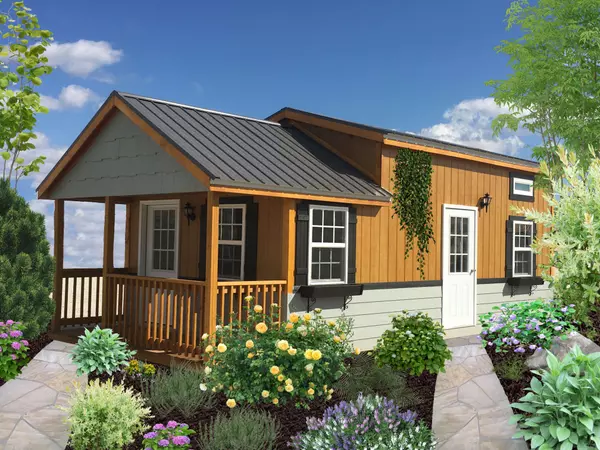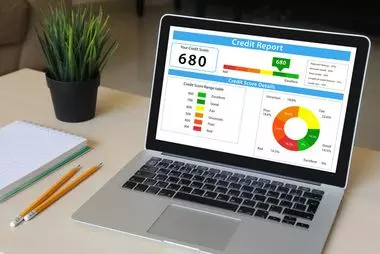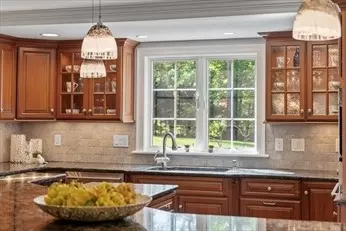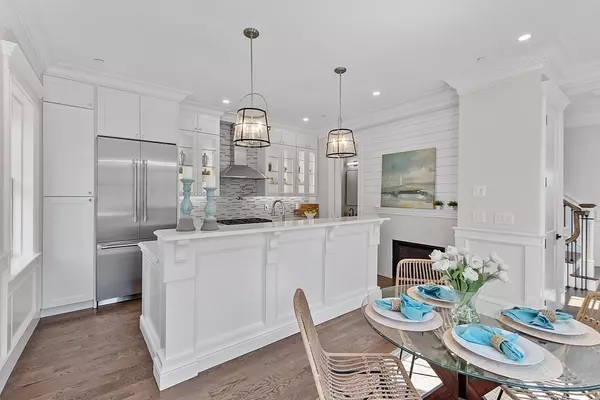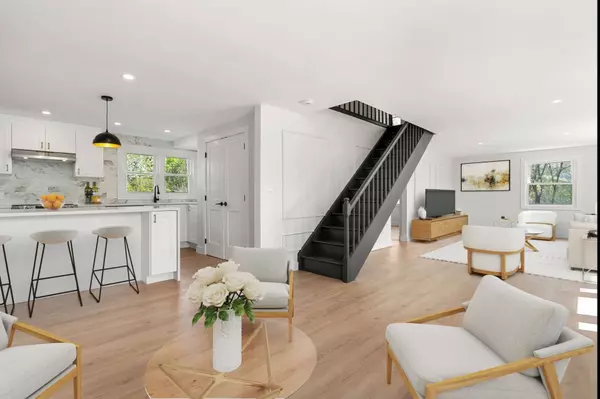T H E B L O G
-
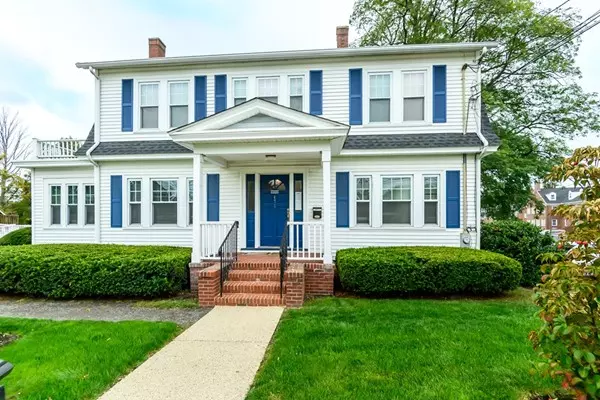
Are you still looking at "Sea Foam Green" and "Dusty Rose" carpeting? Do you have flowered wallpaper borders across your dining room and bedroom? You're not alone - but that doesn't mean you can't do something to change things! Get rid of those outdated looks by implementing some of the top interior design trends for this year. Sustainable and eco-conscious Environmentally conscious home design is a strong trend right now as many homeowners and designers look toward long-term sustainability in favor of short-term makeovers. Consider how you can improve your own home's efficiency with smart systems, durable furniture, and sustainable fabrics and materials like bamboo, cotton, wool and linen. Deep, dark colors Paint is often the easiest and most budget-conscious way to spruce up a room. This year, the major paint manufacturers are looking at natural shades for walls rather than light or neutral colors. Don't be afraid to go bold. Popular colors include dark earthy tones and and pinkish reds, with the top Benjamin Moore color of "raspberry blush," Sherman Williams' "redend point," and Pantone's "Viva Magenta." Of course if you'd rather stick with a neutral go for something in a newer tone such as Behr's "Blank Canvas" or "Rustic Greige" from Dutch Boy. Holistic design Today's interior designers have come to view the entire home as a personal sanctuary, a trend continuing since the pandemic hit. Every room should be designed with your comfort and well-being in mind. Creating places in your home that are both enjoyable and relaxing can help you recover from the challenges of a busy workday, and meet the physical and emotional needs of everyone who lives there. Multi-functional rooms Rooms that serve multiple functions are also trending for 2023. Seldom-used traditional dining rooms can be turned into relaxation spaces, craft or hobby rooms, a music room or office. Rooms no longer need to be designated for just one purpose. Making the most of the rooms in your home, no matter how large or how small, is always in style. Right-sizing Thanks to Marie Kondo, many people find themselves getting rid of clutter and creating an atmosphere of calm. This also translates into design, with people looking to create a living space that fits their modern lifestyle. Younger homeowners may be looking for a larger home, but with spaces that work for their needs. Many retirees and empty nesters choose downsizing, looking to simplify and declutter their homes to reflect their next life stage. Are you looking for a home with great interior function and style? That's where we come in! Contact The Carroll Group today and we will get you started!
Read More Don't Make These Anxious Buyer Mistakes!

Buying a house can be exciting - whether it's your first house, your "move-up" home, a vacation home or your retirement home. You need to be careful, though, not to let your excitement cloud your vision. So keep these tips in mind! The house isn't your perfect vision. Don't forego looking at a house because it doesn't have everything on your wish list. It's very rare to find a "perfect" home, especially with ever changing design choices and "paint colors of the year." It's great to make a list, but use it as a starting point, not an absolute. Making a list will also help you realize what items and features you really can't live without, and which ones you might be able to add later - or not at all. White kitchen cabinets when you want gray? That's a relatively easy and inexpensive fix. Light oak flooring instead of dark espresso wood? The floors can be stained. So keep an open mind and look for "good bones" and a location and size that fit your needs. Making an offer sight unseen. With the shortage of inventory on the market it's become common for properties to receive multiple, over list price offers. Making an offer after just seeing a home online, though, is a very risky proposition. Can you really judge a home's condition just by looking at photos? What can't you see (or smell or hear)? Do the rooms look large due to the camera angle or lens used? Are there funky spaces or features you can't see? Is the yard usable? What's the neighborhood like, and what's the commute like? There are so many things you can't tell by photos, floorplans and "virtual tours" alone. Buying a home is a visceral thing, not one to jump into lightly. Using the open house agent as your buyer's agent When you go to an open house you might have that gut feeling that this is THE ONE. And there's an agent right there at the open house, pointing out the features and maybe telling you there's a lot of interest in the property. You feel the pressure - you want to make an offer. But keep in mind that the agent at an open house represents the seller. What does that mean? That means they're obligated to work in that seller's best interest. You don't want to give away any information that might give the seller leverage when it comes to negotiating. Don't tell the open house agent what your budget is, what you'll compromise on, that you're in a rush to buy, etc. You want an agent who works on your behalf, not one who is giving away your negotiating power. Working with your own buyer's agent is an important factor - and your agent can help you through the process to best suit your time table and budget. Value estimators Speaking of the value of a buyer's agent, let that agent examine the comparable sales in the market to give you a good estimate of the home's value. It's very easy these days to search online and find all sorts of supposed estimation tools, but in reality these tools can't take into account things like specific neighborhoods, the overall condition of homes, upgrades and renovations, environmental factors that will raise or lower a home's value, etc. These online tools just use algorithms that provide generalized estimates. An online value estimator may pin a value of $500,000 on a house that's only worth $425,000, getting your hopes up that you can afford it. Or worse, the house may actually be worth $600,000 which is out of your budget, leaving you with nothing but disappointment! The takeaway Work with an experienced, local, trusted agent when looking for your next home!
Read More-

Yes, it's that time of year - the Spring Home Selling Market! Are you looking to move and hoping to take advantage of the traditional high season of real estate? Here are some tips to help you get your home in show-worthy shape. Make It Inviting: - Open blinds and curtains to let the light in. Take down any "fussy" window treatments that make your home feel dark and outdated - Replace any burnt-out lightbulbs (actually all lightbulbs) with energy-efficient new bulbs - Remove personal photos and items such as college diplomas so buyers can focus on the home and not your life events - Declutter throughout - Vacuum, mop and sweep throughout the house - Give every room a clear purpose. Keep that treadmill out of the bedroom and the desk out of the dining room! Show the Love: - Repair or replace anything that's broken - Touch up any scuffs on walls and woodwork - Clean the outside and inside of all appliances that will remain with the house - Organize countertops, cabinets and closets - Clean vents and baseboards and replace filters Boost Curb Appeal: - Clean windows inside and out - Freshen up your entry with new front door paint, working doorbell, potted flowers and clearing of any cobwebs - Power wash outdoor surfaces, including the exterior of the house, walkways, stone walls - Tidy up landscaping with a nice trim, clean edging and fresh mulch - Sweeps patios, decks and walkways
Read More Spring is on the Way - Really!
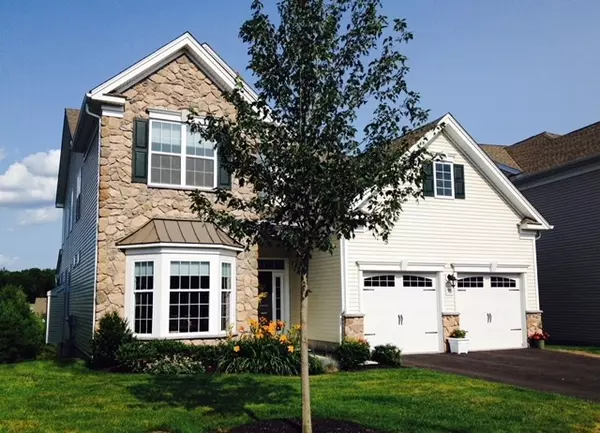
The spring real estate season is almost here, so it's time to think about getting your home ready to sell. Today’s housing market has a different feel than it did 2 years ago and while inventory is still historically low, you'll need to do what you can to get the best price for your property from buyers who may be skittish over interest rates and market conditions. Let's work together to come up with a course of action to determine which improvements are the most valuable in this market, and put together a curb appeal plan, too! You can also look at smaller projects that will make an impact, and that you might be able to do yourself. This will allow you to save money and improve value at the same time. Just be sure they are projects that you can do well! Buyers and their agents can tell if a job was just thrown together in haste and without thought as to the final outcome. Small cosmetic updates, like refreshing some paint (including the front door), power washing the exterior of your home and planting some flowers create a great first impression for buyers and help your home stand out. Prioritize projects that will help you sell faster or for more money over things that appeal to you as a homeowner. You're not doing these things for yourself, but to attract buyers. Be sure your home puts its best face forward. A home that is presented well, priced properly and has great curb appeal will sell faster and potentially over list price. Let's connect and get the process started!
Read More5 Challenges of Running an AirBnB
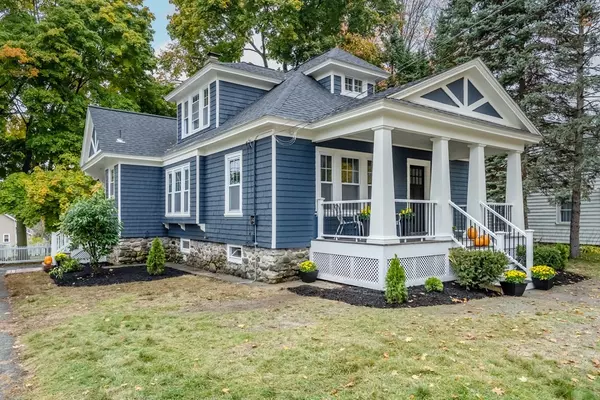
Sometimes homeowners consider renting their current home when they purchase a new property. Usually, this means taking on a long-term tenant with a lease, but these days, many people are turning to short-term rentals. Does this sound like you? A short-term rental (STR) is typically offered as an alternative to a hotel, and they've become super popular in recent years. You've quite possibly stayed in an STR yourself. According to a Harris Poll survey, 28% of homeowners have considered using a rental service to temporarily rent out their home for additional income. Others have rented it out themselves and saved the rental service fees. Owning a short-term rental can be a tempting idea, but you may find the reality of being responsible for one more than you want to take on. Here are some of the challenges you may face. Advertising: Successfully owning and renting a house takes work. Think about your ability to make that commitment. Of course, you can advertise your property on your social media sites yourself, but that will limit its exposure. You can also use a platform that advertises your rental listing, but most of them have specific requirements hosts have to meet, and it takes a lot of work, especially up front. Maintenance and Repairs: Are you handy and able to make some repairs yourself? If you're moving more than a few hours' driving time from the rental property, you'll need a network of affordable local contractors and handy people who will be able to quickly address any issues. You'll also need someone to clean and inspect the property prior to each rental. which means screening tenants and fielding issues, among other responsibilities. Who will be the point of contact before, during, and after the rental term? You? A rental agent? A family member? Calls can come in at any time, so consider whether you want to take on the added responsibility of being a landlord. Furnishings: Before renting your home you'll also need to be sure it has everything a renter will be looking for, including not just ample decent quality furniture but also bedding, bathroom essentials, a fully applianced and outfitted kitchen, smart TVs and wifi, among other things. Regulations: Not only is there the upfront time and cost of owning a short-term rental, but there are also risks that could come up for you down the road, including renting your place to rude guests, theft or damaged property, complaints from neighbors, and potential regulatory violations depending on your location. Many towns have enacted ordinances regarding when, where in town, and how long properties can be rented. You will also need to collect a lodging fee that will be due to the local community. Risks: Not every house ends up being a profitable short-term rental, even if your city or town allows it. One of the biggest factors is where your home is located. Most short-term renters are looking for properties in places they like to vacation or places that are close to popular attractions like beaches or theme parks. The less likely your neighborhood is to be a travel destination, the fewer requests you'll get from potential renters—and that impacts your bottom line. If you don't rent your home often enough to cover your expenses, it will just become an unprofitable burden. There’s a lot to consider before taking the leap and converting your house into a short-term rental, so don't make the decision lightly and without doing a lot of research. It may turn out to be better to sell your home!
Read More-

Just what are closing costs - and how much do they cost? Buyers know they need to save for a down payment when buying a house, but often the amount of closing cost funds needed comes as a big surprise, sometimes eating into the down payment savings. Here's some info on what closing costs are, and a rough idea of the amount they will account for at closing. What Are Closing Costs? Closing costs are the fees and expenses involved with the purchase of a home. They can vary by property location, type of property, lender and mortgage program. These items must be paid before you can become the legal owner of a residential property. Closing costs typically include: Government recording costs Appraisal fees Credit report fees Lender origination fees Title services Tax service fees Survey fees Attorney fees Underwriting fees Prepaid real estate taxes Prepaid homeowners insurance How Much Will You Need To Budget for Closing Costs? The costs to close are typically between 2% and 5% of the total purchase price of your home. Here’s an exmple of what you’ll need to cover your closing costs. If you purchase a home for $400,000, based on the 2-5% estimate, your closing fees could be between roughly $8,000-$20,000. As you can see, these costs can quickly add a lot to your budget. Bottom Line When you apply for a mortgage, be sure your lender explains all the costs and fees associated with the closing. That way you'll be able to budget properly and be prepared to make a solid offer when you find a home.
Read More -
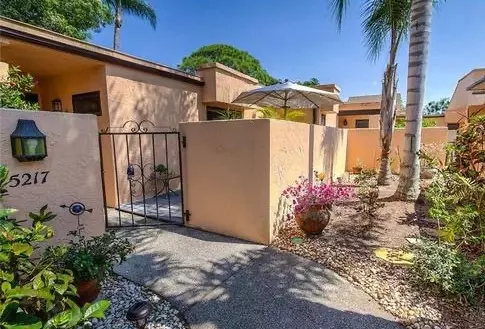
Are you thinking about retiring? There's a lot to do to prepare for retirement, including deciding where you want to live. When you retire, your needs change, and that's when many people think about moving to a place they've always loved, a place closer to family or closer to cultural activities or outdoor spaces that are of interest. Once you're serious about moving, the first step is to do some research. Look into local costs for housing, taxes, health care, food and utilities. Check out the local amenities. There's no point in moving to a new area if you'll be too far from the attractions that interest you. Things to Consider In retirement years, it's especially important to have good access to quality health care. When problems arise, you'll want fast access to respected health care providers, hospitals and in-network specialists. Research crime statistics and reviews of local law enforcement. Consider your safety in both the daytime and nighttime. Check to see where local amenities are - How far are you willing to go to get to the nearest grocery store, dry cleaner, library, etc. Do you have hobbies? Check out walking paths, places to eat and shop, places to enjoy doing crafts or exercise — and places that offer senior discounts. Look for states that offer tax breaks for retirees or that protect the transfer of assets when you die. There's a reason many people move to Florida when the retire! But there are other states that offer tax breaks as well. Factor in transportation. Moving to a place that's walkable and has good transportation, a temperate climate and access to recreation helps you stay active longer, resulting in you being healthier longer! If you like to travel, choose a spot that's not too far from an international airport. Consider renting in a new location before buying. That will give you a chance to know whether this is the place where you want to spend your retirement. The key to a happy retirement and aging well is having ongoing opportunities for engagement, connections and lifelong learning - and loving where you live! Let us know if you're thinking about retirement and we'll help you find just the right spot.
Read More -

It's that time of year - winter vacation season! Home security has come a long way, even just in the past year or two. What are the best ways to keep your home secure while you’re traveling? Here are some ideas and products to help give you some peace of mind while you're traveling, and every day of the year! Use timers or smart lights - When you’re away, the key is to make it look like you’re home as usual. Using a timer or a smart plug for some lamps can make it look like someone is home. Set timers to go on at dusk and go off at a typical bedtime. Windows and blinds - Many people pull down their window shades when they go on vacation, but if your shades are down during the day, it can signal that no one is home. It’s best to leave them shades and drapes like they would be on a typical day when you're at home. If you travel frequently, you may want to invest in smart shades that work via an app on your phone and can be set to raise and lower at regular intervals. Sign up for a mail hold - An overflowing mailbox is a big sign that no one is home. You can ask a friend or neighbor to grab your mail every couple of days or sign up for Hold Mail from the U.S. Postal Service. This free service is available in most areas. The post office will keep your mail until the end date you specify and will then deliver it all at once. You can request Hold Mail on the Postal Service website (USPS.com). Talk to trusted neighbors - When traveling, make sure someone you trust knows you’re out of town. Trusted neighbors can keep an eye on your place and let you know if anything unexpected happens. They can also get any packages that are left at your door. Install a doorbell camera - Speaking of packages left at your door, a doorbell camera is great for when you’re home, but they can be even more valuable when you’re away. You’ll receive an alert whenever anyone approaches your door, and you can even talk to them through an app on your phone. Don't Post on Social Media - Save posting those vacation photos until you get home. Even though you think only your friends can see your posts, there are hackers out there who make it their business to get into your business. Don't give them a heads' up that you will be away! Arrange for Snow Clearing - A huge indicator that you're not home is a driveway that isn't plowed during a snow event. Speak to your regular plow company to be sure they will be plowing promptly or hire a neighborhood teen to clear your driveway and front walkway. Enjoy - Take care of safety measures before you leave so you can enjoy your vacation!
Read More For Sale By Owner. Is It Really Worth It?
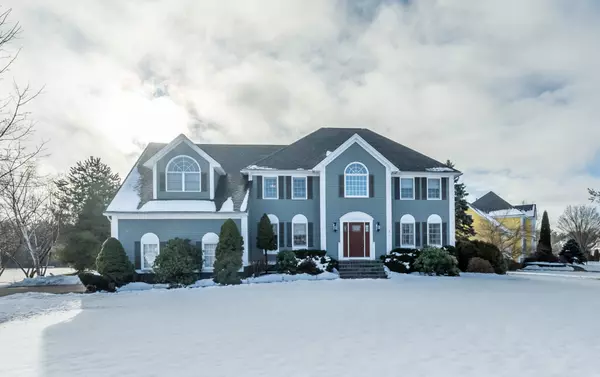
For Sale By Owner. We've all heard the phrase, otherwise known as a FSBO. Is it really that easy to sell a home on your own? Here are four reasons it really doesn't save a seller time and money to sell without an agent. 1. Do you really have the time and energy to devote to the sale? You may think you have the time, and maybe you do. But do you know what an agent does before showing a house? The marketing, recommending repairs, preparing the house with staging and decluttering, the price determination using current market statistics, etc. Will you be able to market your home properly? Most sellers have no idea how much effort goes into creating a unique digital presentation, including video, social media platforms and more. Homebuyers will almost always have seen every aspect of a home online before visiting in person. REALTORS® have professional and expensive tech tools that are vital in today’s residential real estate landscape. Even a computer-savvy homeowner can’t necessarily create the type and amount of marketing an agent can. 2. What about after the house is listed? Agents are experts at scheduling clients, hosting open houses and, most importantly, listing the house with an MLS while likely already having clients looking for a house to buy. Networking with other agents is also something a homeowner cannot do. Understanding and knowing how to respond to questions from potential buyers is a skill in itself, as you as a homeseller need to know what information must be divulged as well as what to keep to yourself in order not to tip your hand. 3. Will you always be available to show the property? One of the things homeowners pay for through an agent’s commission is convenience. Potential buyers may want to see a house days, nights or weekends. Agents usually make themselves available 24/7, sometimes multiple times a day if needed. Add in all the phone calls, emails and texts and suddenly it’s not quite as easy or timefree to sell a house. Then there’s the negotiating. It can get tense going back and forth between a buyer and seller. An agent knows how to keep things going without letting emotions get in the way. 4. Will you need to get involved with procedures and contracts? While lawyers do much in terms of contracts and deed work, it's the agent who keeps track of many of the important details regarding the mortgage, selling timeline, appraisal, home inspection, other inspections such as smoke detectors and septic systems, referrals for all kinds of services, etc. An agent will provide guidance and direction throughout the entire transaction. Having the agent in the middle can lessen the stress, and almost always results in a higher sale price!
Read MoreHave You Applied For A Mortgage?

Looking for a home is an exciting time! There are some key things, however, to keep in mind while you're out there searching for your dream home. Here’s a list of things you need to avoid doing after applying for your home loan. Don’t Deposit Large Sums of Cash Lenders need to source your money, and cash isn’t easily traceable. Before you deposit any amount of cash into your accounts, discuss the proper way to document your transactions with your loan officer. Many lenders will counsel you not to make any deposit over $100 without documenting the source. Don’t Make Any Large Purchases It’s not just home-related purchases that could disqualify you from your loan. Any large purchases can be red flags for lenders. People with new debt have higher debt-to-income ratios (how much debt you have compared to your monthly income). Since higher ratios make for riskier loans, borrowers may no longer qualify for their mortgage. So don't go and buy that new couch or that set of stainless steel appliances until after you move in! Don’t Co-sign Loans for Anyone When you co-sign for a loan, you’re making yourself accountable for that loan’s success and repayment. With that obligation comes higher debt-to-income ratios as well. Even if you promise you won’t be the one making the payments, your lender will have to count the payments against you. So don't be swayed by your sister's crying or your best friend's slaps on the back - don't co-sign any loans! Don’t Switch Bank Accounts Lenders need to source and track your assets. That task is much easier when there’s consistency among your accounts. Before you transfer any money, speak with your loan officer. Don’t Apply for New Credit It doesn’t matter whether it’s a new credit card or a new car, when you have your credit report run by organizations in multiple financial channels (mortgage, credit card, auto, etc.), it will have an impact on your credit score. Lower credit scores can impact your interest rate and possibly even your eligibility for approval. Don’t Close Any Accounts Many buyers believe having less available credit makes them less risky and more likely to be approved. A major component of your score is your length and depth of credit history (as opposed to just your payment history) and your total usage of credit as a percentage of available credit. It's counter-intuitive, but closing accounts has a negative impact on both of those aspects of your score. Do Discuss Changes with Your Lender Be upfront about any changes that occur or you’re expecting to occur when talking with your lender. Blips in income, assets or credit should be reviewed and executed in a way that ensures your home loan can still be approved. If your job or employment status has changed recently, share that with your lender as well. It's best to fully disclose and discuss things with your loan officer before you do anything financial in nature. You want your home purchase to go as smoothly as possible, so be sure to consult your lender to explain how your financial decisions may impact your home loan.
Read MoreAre Rent Increases Stressing You Out?
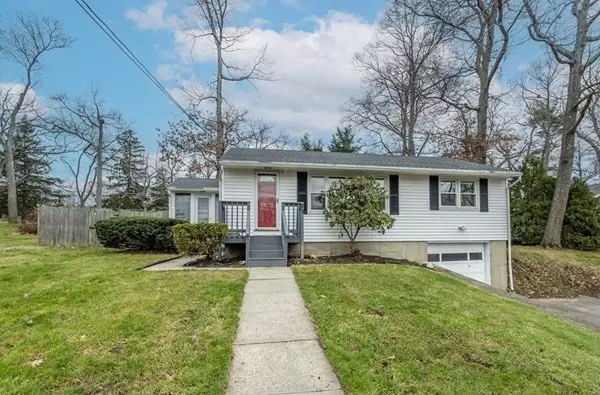
In the past year, almost 75% of both current and new renters have seen their rent go up, at a quite significant rate. Traditional rent hikes average 5% per year, while this year's expected increase is 6.3%. If you’re a renter, you're likely facing an important decision: renew your current lease, start a new one, or buy a home. Before you make a decision, it helps to understand the true costs of renting moving forward. Homeownership Provides an Alternative to Rising Rents These rising costs may make you reconsider what other alternatives you have. If you're looking for more stability, it could be time to seriously consider homeownership. One of the many benefits of owning your own home is it provides a stable monthly cost that you can lock in for the duration of your loan. Monthly rent payments usually increase over time, but a fixed rate mortgage ensures that you pay the same amount each month (exclusive of real estate taxes). This makes it easier for you to budget and plan for the future. Another benefit of homeownership is equity. A recent report from CoreLogic shows the average homeowner gained $34,300 in equity over the past year. Think of equity as a savings account. Each month you add more equity as you pay down your mortgage. As a renter, you won't create any equity, only your landlord will. If you’re thinking of renting this year, let’s chat. We'll get you on the road to homeownership!
Read More-
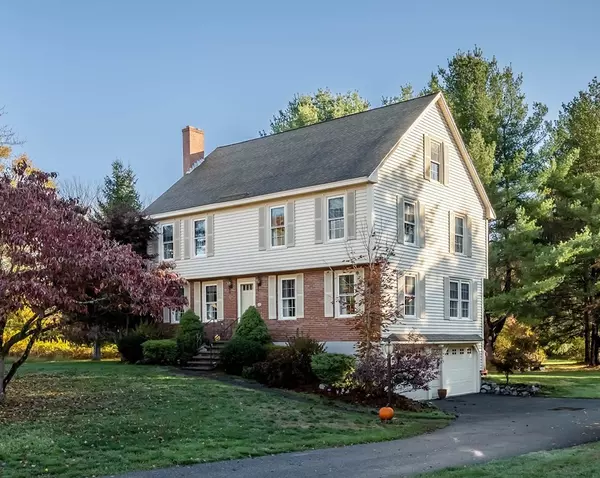
Deciding to sell your home can be an emotional decision. Keep these tips in mind to feel confident you're making the right decision for you at this time. 1. Price Your Home Right The housing market shifted in 2022. Homes aren't necessarily flying off the market with multiple over asking offers in a matter of days. As mortgage rates rose, buyer demand eased, and the number of homes for sale increased. As a seller, be sure to discuss the current local market with an experienced agent to be sure to price your home right based on where the market is today. If you price your house too high, you run the risk of deterring buyers. And if you go too low, you’re leaving money on the table. Appropriately priced homes are still selling quickly and with good overall terms. 2. Keep Your Emotions in Check Every room has memories, and it’s often hard to separate the emotional value of a house from its fair market price. Let your agent guide you with market statistics, return on investment of upgrades and renovations, and negotiations that will net you a fair market value. 3. Stage Your Home Properly While you may love your decor and how you’ve customized your home over the years, not all buyers will feel the same way about your design aesthetic. Staging is very important in order for your house to appeal to the greatest number of potential buyers. Focus on your home's first impression. Create a welcoming property that will make buyers fall in love at first sight. And second and third sight, too! Remove your personal photos and decorative items, get rid of clutter, remove excess furnishings to make the home appear bigger and brighter. Buyers want to be able to see themselves living in your home. Staged homes tend to sell for higher prices than those that are not staged. 4. Work with Your Agent A real estate professional is your best bet for getting your home sold with the best overall terms and price!
Read More -
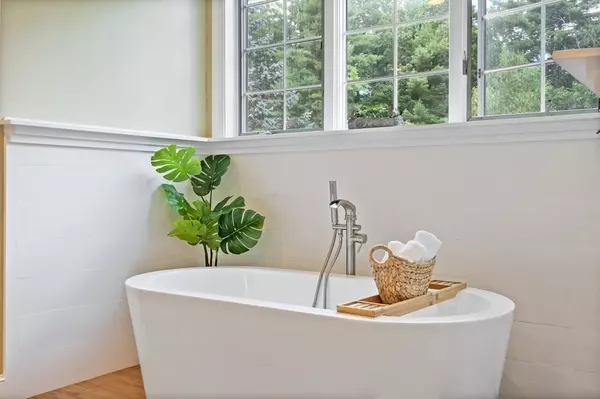
Are you drooling with envy at the bathrooms you're seeing in magazines and on tv? Remodeling your bathroom with some trendy designs and fixtures is sure to make it look more modern and inviting. It's is a great way to add character, comfort and value to your home, too! Walk-in Showers are a great way to add a luxurious look to your bathroom, creating a more open and airy feel that will make your bathroom look and feel larger. Add glass walls, tile or stone floors and a rainhead shower fixture or multiple jets and get ready to relax! Floating Vanities are the perfect way to add a modern touch to your bathroom. By suspending the sink from the wall, you can open up more floor space for added storage and style. They will also add to the look and feel of having more light and space. They're available in all sorts of designs, from sleek and contemporary to warm rustic looking woods. Freestanding Tubs are a great way to bring some style and luxury into your bathroom. Sometimes called "floating tubs" they are visually pleasing, and give extra space for a luxurious soak, rather than the usual shower/tub combination. They come in a variety of shapes, sizes and styles so you can enjoy your bubble bath in a chic personal space! Spa Inspiration Create a calm, luxurious atmosphere in your bathroom by incorporating natural elements like wood, stone accents, and greenery. Look for double sinks for plenty of counter space, inviting lighting fixtures with dimmers to set the mood and some scented candles. A chandelier over the tub will add an elegant touch. Bold Colors - If you’re looking to make a bold statement with your bathroom remodel, choose a bright, vibrant color palette. Jewel tones like emerald green and deep blue are stunning when paired with crisp white accents. Or opt for earthy hues like terracotta and mustard yellow pair nicely with muted wooden accents. Add some texture with woven rugs and blankets. Whatever you decide to do, make sure your design fits your aesthetic and your budget, so you'll be happy with the end result.
Read More Key Real Estate Terms for Buyers
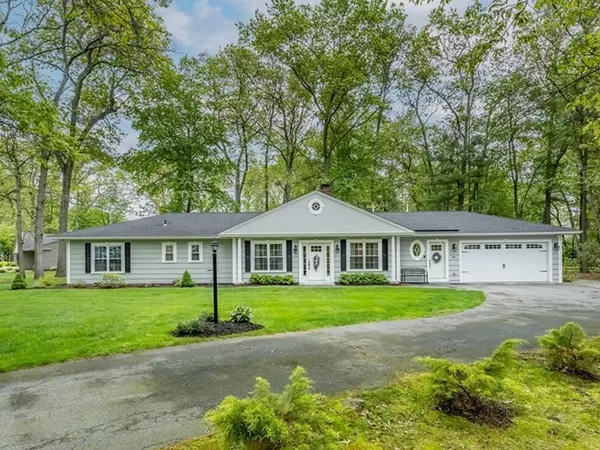
There's a lot to understand when buying a home, starting with some of the key terms you'll hear from your Realtor, Lender and Bank. So what do they mean? Credit Score - Your credit score helps your lender determine the likelihood that you'll repay your future debts, including your mortgage. Scores range from 300-850 and are based on an analysis of your credit history. The higher your score, the more creditworthy you're deemed, and costs for borrowing may be less than if you had a lower credit score. Affordability - This is a measure of whether you earn enough to qualify for a loan based on the most recent price, income and mortgage rate information. When home prices and/or mortgage rates are higher, it can impact affordability, meaning you may not be able to afford a property that you previously would have qualified to purchase. Down Payment - This may be a term you've heard, but do you know how much money you need to save to purchase a home? Common down payment amounts are between 3.5% and 20% of a home's purchase price, but there are some programs that allow for 0-3% down. Your lender will be able to outline the various programs. Mortgage Rate - The interest rate you pay to borrow money when purchasing a home. Mortgage rates fluctuate, so you will need to discuss how changes in the interest rate may affect your monthly mortgage payment. Pre-Approval - A pre-approval letter from your lender will help you determine a target price range and will show a seller that you're qualified to purchase a home. Inspection Contingency - This is a provision in the purchase contract that gives you the opportunity to have a home inspection. The inspection will give you information on the home's condition and potential maintenance and repair issues in the future. Appraisal - After your offer is accepted your bank will want to confirm the home's value, and be sure they aren't lending you more money than the home is worth. A licensed home appraiser will examine the home and compare it to similar homes in close proximity to create a valuation. Closing Costs - Your lender will be able to give you a complete list of the fees required to complete the real estate purchase. These charges are paid at the closing.
Read MoreWinter Homeselling Preparation Tips
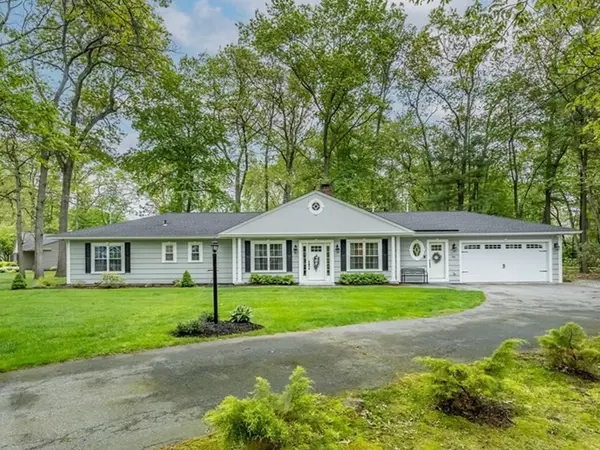
Are you thinking of selling this winter? We can give you time-tested advice on what to do to maximize your return on your home sale, but get a jump on things by doing these tasks: - Clean vents and baseboards, and replace furnace filters - Check lightbulbs and replace as needed, using the most energy-efficient bulbs - Take personal photos and items off the walls - Touch up any scuffs on the walls, stair risers and painted woodwork - Fix anything that's broken - Declutter throughout - Give every room a clear purpose (ie, don't have a desk in the bedroom, don't have a treadmill in the dining room, etc.) - Organize countertops, cabinets and closets - Freshen up your entry with new paint on the front door, new lighting, potted evergreens - Clean the windows - If weather permits, power wash outdoor services and tidy up the landscaping - Sweep patios, decks and walkways - Clean windows - Before each showing be sure to vacuum, mop and sweep floors and open blinds and curtains to let in as much light as possible
Read MoreThinking of Purchasing a Home This Winter?
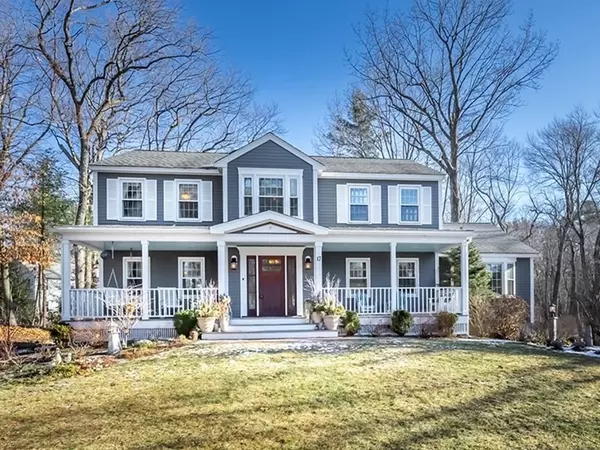
While mortgage rates are higher now than they were last year, you still may be thinking about buying a home soon. Higher interest rates will impact how much it costs to borrow money for a mortgage, so it's imperative to come up with a plan and be mindful of your "must haves" and "would like to haves" when searching for a home. How should you proceed? First, get a mortgage pre-approval. This will help you better understand how much you can borrow, and will keep you from looking at (and falling in love) with homes you can't afford. Once you have this number in hand, you can focus on what you need now and what you'll need in the years ahead. What are absolute necessities now? Can you renovate or update a home in the future to meet your list of wants? Above all, you'll want to avoid stretching your budget too far. So put together a list and stick to it! Must-Haves – If a house doesn’t have these features, it won’t work for you and your lifestyle (examples: distance from work or loved ones, number of bedrooms/bathrooms, etc.). Nice-To-Haves – These are features that you’d love to have but can live without. Nice-To-Haves aren’t dealbreakers, but if you find a home that hits all the must-haves and some of the these, it’s a contender (examples: a second home office, a garage, etc.). Dream State – This is where you can really think big. Again, these aren’t features you’ll need, but if you find a home in your budget that has all the must-haves, most of the nice-to-haves, and any of these, it’s a clear winner (examples: farmhouse sink, multiple walk-in closets, etc.). Give us a call and we'll be happy to help you nail your list down, and then we'll get your home search going!
Read MorePlan, Plan and Plan Some More!
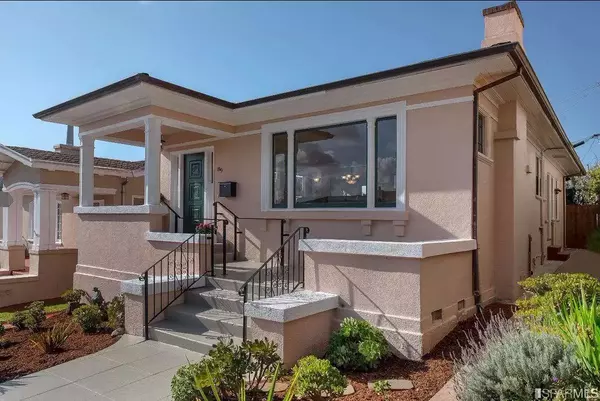
It's fun and exciting to think about putting an addition on your home but it takes a lot of forethought and planning to ensure a successful and on-budget result. So whether you're adding a bathroom, a sunroom, a deck or a larger addtion, before you jump into a home addition project, be sure to consider these things. Budget Building an addition is definitely not cheap. It is safest if you work with a licensed local contractor, who knows the permitting and other nuances of building in your town. A reputable contractor should be able to provide you with a detailed estimate and breakdown of costs. It's also important to evaluate hidden costs and set aside adequate funds. Things like plumbing, electrical wiring and permits may not be included in the estimate. If you'll need to move out of your home during construction, be sure to factor in costs associated with such a move, and rent for a temporary spot. Carefully plan and budget for all expenses before starting on the project to avoid these hidden, costly expenses. Floor Plan You can't begin an addition without a floor plan. Contractors will work with you to design an addition that complies with all the rules and regulations of your community - as well as one that meets your needs. This plan will serve as a roadmap for the entire project, so it's one of the first things you should do when you decide to build. Contractor Your contractor can make or break your home addition project, so it's important to pick the right one. Your contractor should be properly licensed and insured for your area, and they should have a solid, positive reputation. Take your time to research the contractor online, obtain references from their previous clients and compare their quote with other companies. Drive by projects the contractor has completed to see if they look good. Proper Permits and Inspections Permits and inspections can be expensive and time consuming to obtain, but you can't legally build an addition without them. Some permits have to be purchased upfront, while others must be obtained at various project checkpoints. It's important to research the permits and inspections you'll need so you can budget your resources accordingly. A contractor who has often worked in your community will likely have forged a relationship with the people who are involved in granting permits, helping to smooth the way. Failure to comply with these rules can result in an unsafe structure and legal repercussions. You don't want to have to tear down your addition because you (or your contractor) didn't obtain the proper approvals or have the project inspected and signed off on. Timeline A timeline for your project is almost as vital as the floor plan. Building an addition is a huge time commitment, so it is incredibly important for you and your contractor to stay on schedule. A timeline will keep the project moving along quickly so it doesn't drag on forever. This is even more important if you will be required to move out of your home during construction. Finding short term housing can be both difficult and expensive, so you don't want to go over budget because your addition isn't ready when planned. End Result The end result of your addition should leave you happy, so be sure to plan, plan and plan some more so you'll enjoy your addition for years to come!
Read More-

No one loves us like our pets love us! So if you're planning a move, be sure to prepare for moving your pet safely. Did you know that more than 10 million pets go missing each year? A good number of those wander off while their families are preparing for or in the midst of a move. So be sure to take preemptive measures to ensure your pets make it safely through the listing and showing of your current home and the final move to their new home. Prepping for Showings While many, many homebuyers are pet lovers and some may be very happy to meet your 4-legged babies, it is always best to remove your pet during showings. Your pet will not be stressed having strangers come into the house, and buyers and agents who might be wary of unknown animals will feel more at ease. The last thing you want is to come home after a showing and find your dog wimpering in a corner or your house cat scratching at the back door to come in. Also be sure to sweep up any pet hair, make sure the yard is free of droppings, and put pet supplies away. This will also help remove pet odors and will allow buyers to focus on your home, instead of tripping over and spilling your dog's water bowl. ID Your Pets Microchipping your pets gives them their best chance at returning home in the case of an accidental escape. This procedure involves implanting a chip the size of a grain of rice under your pet’s skin. Before the move, make sure your pet’s tags and chip information are up-to-date with current contact information. Pets that are easily identifiable are more likely to be returned! Practice Traveling If your pets aren't used to traveling, get them accustomed to being in the car well ahead of moving day. Start with short trips so your pets will associate driving with something positive, and not just a trip to the vet. Gradually increase the time and distance of trips and always offer treats for good manners, or at least some extra ear rubs! Consider investing a few dollars in a vehicle restraint system for your dog, and a cozy soft crate for your cat. You’ll be less distracted and your pets will be safer if they're not roaming free in the car or sitting in your lap during a sudden stop. As a matter of fact, in many states it's illegal to drive with a dog in your lap. Boarding or Bonding May Be Best You might consider boarding your dog or hiring a dog walker to keep your pet entertained in the days before and especially on the day of the move. This will allow your dog more freedom and will keep your dog from being underfoot and maybe running out the door. If your pet is one who tends to get nervous with strange people or increased activity in the house, it's beneficial to all to have your pet in a safe, calm place. Check It Out When you arrive at your new home with your pets, allow them to explore the new surroundings. If possible, have a few favorite toys waiting in various rooms upon arrival and some special treats ready to give out. Be patient, and let them check out each new room in their own time. Most importantly, pour on the love! This will ease their fears and make the move easier - on both you and your pets!
Read More Will Foreclosures Be Flooding the Market Soon?
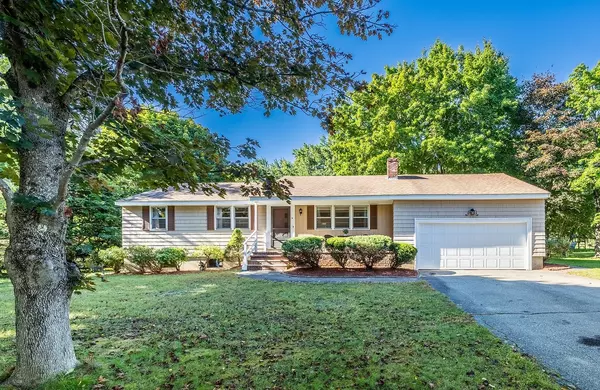
With the rapid shift that’s happened in the housing market this year, many people are worried that we’re headed for a repeat of the crash we saw in 2008. There are, however, many big differences between what’s happening today and what happened during the bubble in the early 2000s. The main reason is that the number of foreclosed properties in the current market is far lower than was the case in 2008. Why is this? Not as Many Homeowners Are in Trouble This Time During the housing crash in 2008over nine million households lost their homes due to a foreclosure, short sale, or because they gave it back to the bank. In large part this was because of more relaxed lending standards where people could take out mortgages they ultimately couldn’t afford. Those lending practices led to a wave of distressed properties which made their way into the market and caused home values to plummet. In addition, mortgage products such as "no income verification" or "balloon" payments ran rampant and the result was millions of people who couldn't make their mortgage payments. Today's revised, tightened lending standards have resulted in more qualified buyers and the end of risky loan products. As a result, there are fewer homeowners who are behind on their mortgages. Mortgage deliquency rates are at the lowest they've been in over 40 years. There Have Been Fewer Foreclosures Over the Last Two Years During the pandemic, many homeowners were able to pause their mortgage payments using theforebearance program. This allowed homeowners facing payment difficulties extra time to work out a plan with their lender to make or catch up on late payments. So while there are more foreclosures now compared to last year (when foreclosures were paused), the number is still well below what the housing market has seen in a more typical year, like 2017-2019. The number we’re seeing now is still far below the number we saw during the market crash While foreclosures are up year-over-year, historical context is essential to understanding the full picture. Most Homeowners Have More Than Enough Equity To Sell Their Homes Many homeowners today have enough equity tosell their homes instead of facing foreclosure. In the collapse in 2008, many homeowners were "upside down" on their mortgages, as their homes were worth less than they had paid for them. Today, due to rapidly rising home prices over the last two years, the average homeowner has gained record amounts of equity in their home. And if they’ve been in their homes longer than two years, they may have even more equity than they realize. This equity provides a cushion for homeowners to withstand potential price declines and avoid foreclosure, since their homes will likely sell for well over the mortgage balance. If you're having trouble making your mortgage payments, let us know. We can provide you with a market analysis of your home, so you'll know your home's value in the current market. With that information you can decide if it makes sense to put your home on the market, take advantage of the equity, and rid yourself of the stress of a looming foreclosure. We are also happy to put you in touch with lenders who may be able to help you refinance into a manageable mortgage payment. We're here to help!
Read MoreTips for Buying a Home During the Holiday Season

From traveling to gathering with family to hosting friends at a new home for the very first time, the holiday season can be a whirlwind. But the schedule of celebrations can be even more complicated for someone planning to search for a home this time of year. Here are some tips to make things easier during this busy time of year. Work with qualified professionals Working with a reputable, full-time real estate agent can help alleviate much of the stress of the homebuying process – in any market or season. Work with an experienced agent who knows the market, knows your price point, and knows what to offer in your specific area. Interview several agents or get a referral from ind an agent you can trust and who understands your goals. Interview several agents or get a referral from someone who know who had a good experience. You want the process to go as smoothly as possible. You'll also want to talk to a mortgage lender who understands the fluctuation of interest rates, especially since we're seeing constant changes these days. Having both a reliable agent and lender is especially helpful in this market, so you'll know for sure what you can afford before heading out to look at houses. Understand market conditions and annual patterns In many locales, the years-long seller’s market has begun to balance, meaning current homebuyers and sellers are facing drastically different – and for some, brand new – market conditions. We are in a situation where sellers are starting to offer more concessions to attract buyers. But in addition to overarching market trends, seasonal patterns also pop up annually. During the holidays, there's typically less inventory available. It’s a time where moving is more of a need because of an upcoming life event, like a job change. It’s not as popular of a time to move and is more of a time to move out of necessity. In addition, the recent rise in interest rates may be preventing some buyers form entering the market, potentially opening up more inventory for those who do intend to buy soon. This results in less competition. Prepare for timeline flexibilities Most people are busy during the holiday season – and that includes those who work in lending, inspecting, repairing, and moving services, too. When buying a home toward the end of the year, buyers can expect "normal" timelines to fluctuate. You have to account for holidays and business closures during the process, so you need to be flexible. During the holiday season, it’s not uncommon for buyers and sellers to push off the closing date in order to move after the holidays have ended. Sellers may want a longer closing date so as not to have to move during the holidays. They are motivated to sell if they have a home on the market at this time of year, however they may want to push off physically moving for a bit. Plan ahead for the big move Once a date is set, contact a moving company ASAP to get on their schedule. If it’s during the holiday season, there may be less flexibility with days. But, you may find the holiday season is a great time to find deals on home goods, furniture, appliances, and more. If someone is motivated to purchase or sell, they are still going to make decisions based on their long-term real estate goals, so don't use the holidays as an excuse to not look for a home. It could turn out to be the best gift you could ever give yourself!
Read More
Categories
Recent Posts



